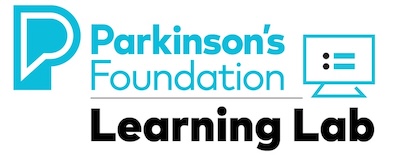Managing Care in the Emergency Department
 An integrated approach to care is crucial for people diagnosed with Parkinson’s disease. People with Parkinson’s often present to the emergency department with different ailments — the most common being falls, pneumonia, urinary tract infection and fractures.
An integrated approach to care is crucial for people diagnosed with Parkinson’s disease. People with Parkinson’s often present to the emergency department with different ailments — the most common being falls, pneumonia, urinary tract infection and fractures.
Appropriate triage is key to providing optimal care and avoiding certain pitfalls. This section addresses ways to assure optimal care of an individual with Parkinson's when admitted to the emergency department.
Syllabus |
Pre-Knowledge Quiz Prioritizing Parkinson's Disease in the Emergency Department Accommodating the Unique Needs of People with Parkinson's The Expert Voice of the Patient and Care Partner Leaving the Emergency Department, with what and to where? Advocating for a Safe Hospitalization Podcast References, Summaries, and Resources Post-Knowledge Quiz Evaluation Credit Claiming and Certificate |
Target Audience
This activity is designed to meet the educational needs of:
Physicians
Physician Assistants
Nurses
Pharmacists
Psychologists
Social Workers
Learning Objectives
1. Explain how Parkinson’s disease is a relevant co-morbidity during the emergency department admission.
2. List three Parkinson's symptoms that may be less understood.
3. Repeat three possible questions to ask the person with Parkinson's and/or their care partner to inform treatment and/or discharge.
4. List two common challenges the patient and family may face during transitions in care.
Parkinson’s Foundation adheres to the ACCME’s Standards for Integrity and Independence in Accredited Continuing Education. Any individuals in a position to control the content of a CE activity, including faculty, planners, reviewers, or others are required to disclose all relevant financial relationships with ineligible entities (commercial interests). All relevant conflicts of interest have been mitigated prior to the commencement of the activity.
Debra Mayer, RN, MSN, CNE
Lance Wilson, MSS, LSW, C-SWHC, ASW-G
Available Credit
- 1.00 AAPA Category I CME
- 1.00 ACPE Pharmacy
- 1.00 AMA PRA Category 1 Credit™
- 1.00 ANCC
- 1.00 APA
- 1.00 ASWB ACE
- 1.00 IPCE Credit™
- 1.00 Participation

 Facebook
Facebook X
X LinkedIn
LinkedIn Forward
Forward